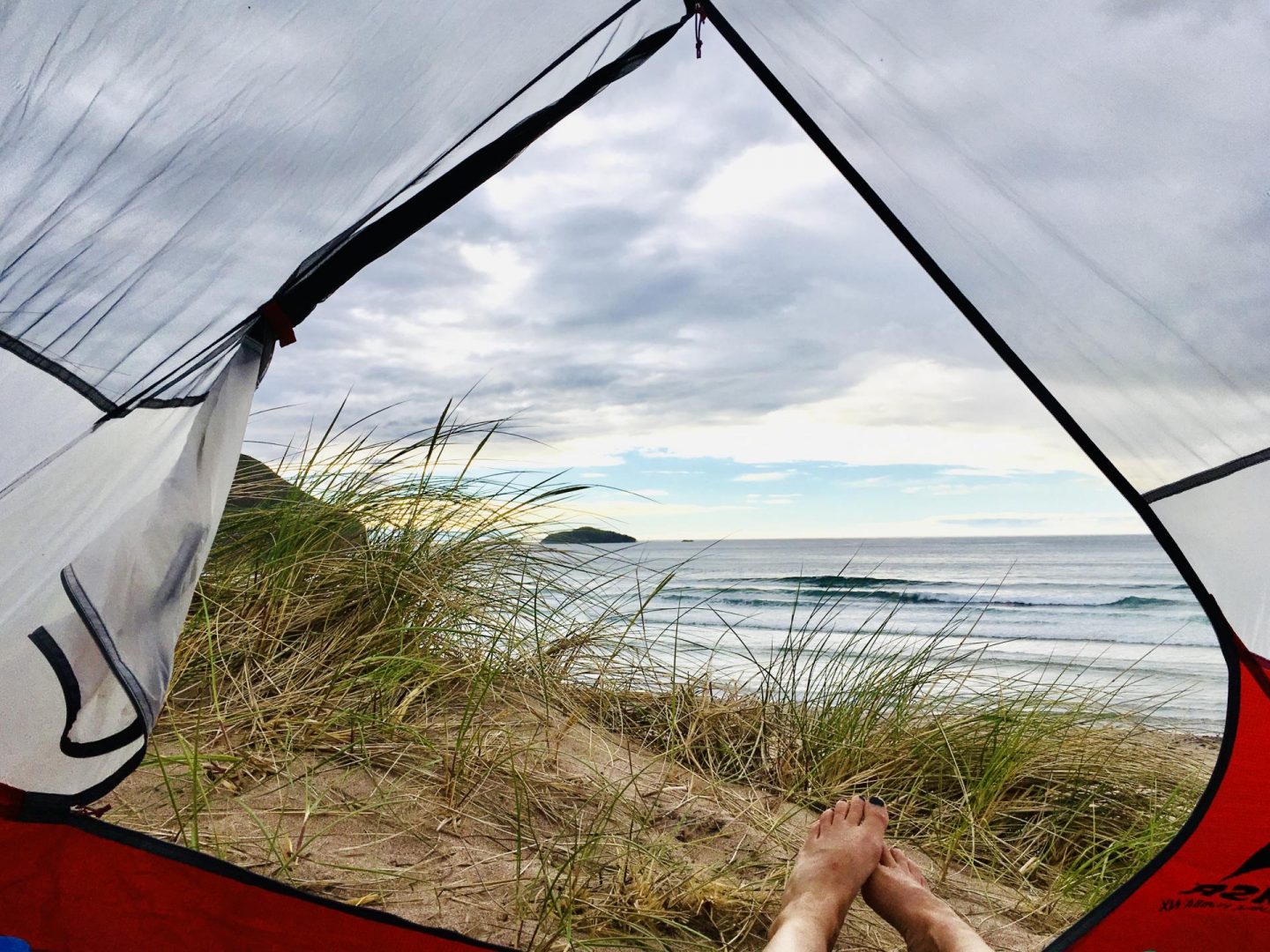
How to go wild camping: wild camping tips beginners
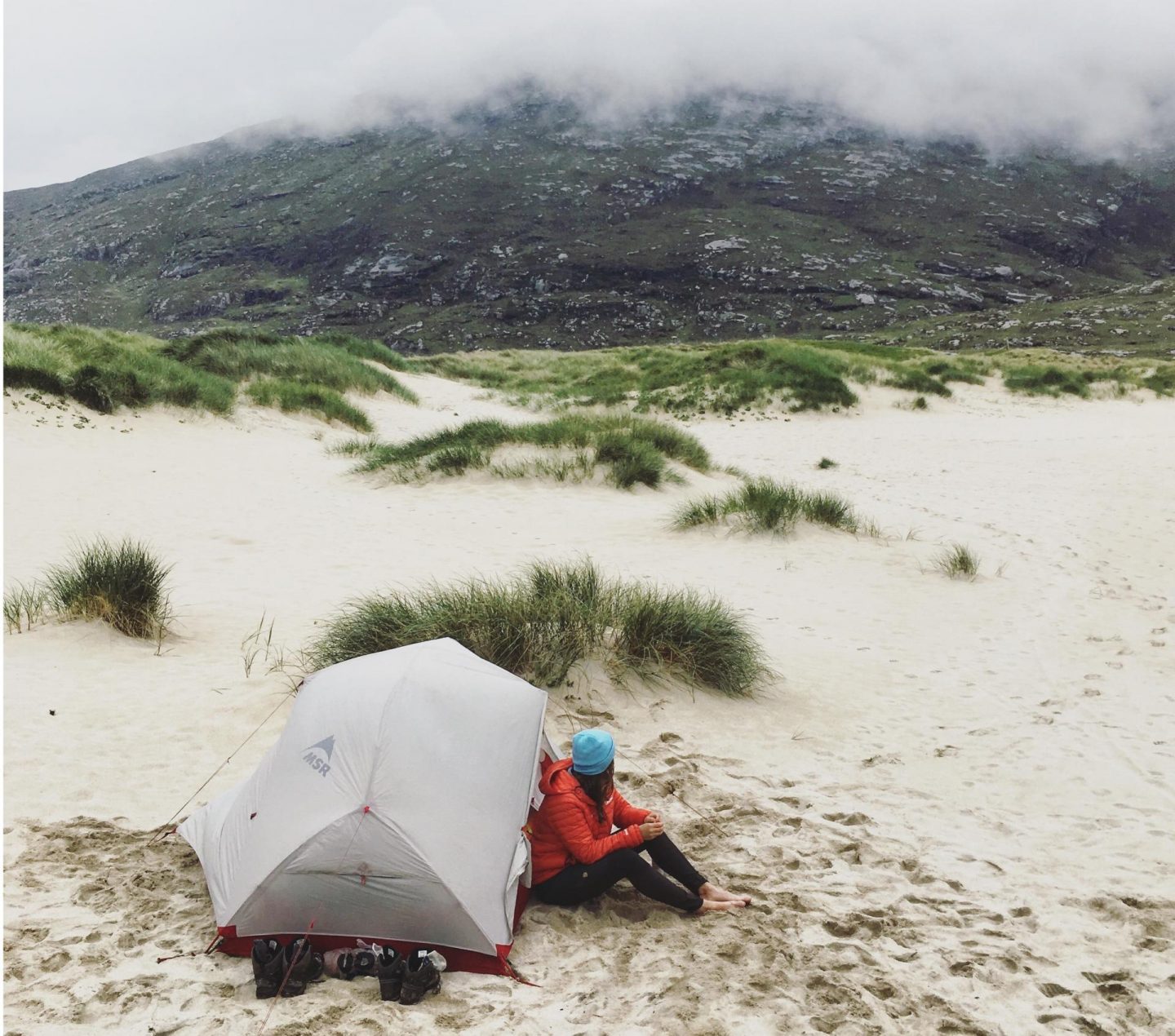
Dreaming of sleeping wild but not sure where to start when you’re away from the safety of your favourite campsite? Grab your tent and get exploring – my twelve top wild camping tips for beginners will give you the knowledge and confidence you need to go further afield.
1, Know the law
Sadly, wild camping isn’t legal in most of Britain. The exception in England is Dartmoor National Park, where it’s permitted in some specific parts of the park, and some other (usually mountainous) areas where wild camping can be tolerated. The good news is that you can camp on unenclosed land in Scotland if you follow the access rights established by the Land Reform (Scotland) Act 2003 – note that Loch Lomond is one exception, as the area is subject to its own bylaws. Do some research before you go, and read online rules and advice carefully for your chosen spot. On Dartmoor, for example, ‘backpack’ or wild camping is accepted if you camp for one or two nights, stay well away from roads and houses and leave no trace of your visit, and the park authority have an interactive map where you can check where wild camping is and isn’t permitted.
2, Be safe
Make sure you’ve let someone know where you’ll be and when you expect to return. Carry both a physical Ordnance Survey map and a GPS app on your phone, as well as a head torch and a first aid kit. It’s best to avoid heading out in very bad weather, too.
3, Practise at
home
You
don’t want to be faffing around with a tricky new tent or a temperamental
camping stove when you’re camping somewhere remote. Practice setting up your tent
and using your equipment at a campsite (or even in your back garden) before you
venture further afield.
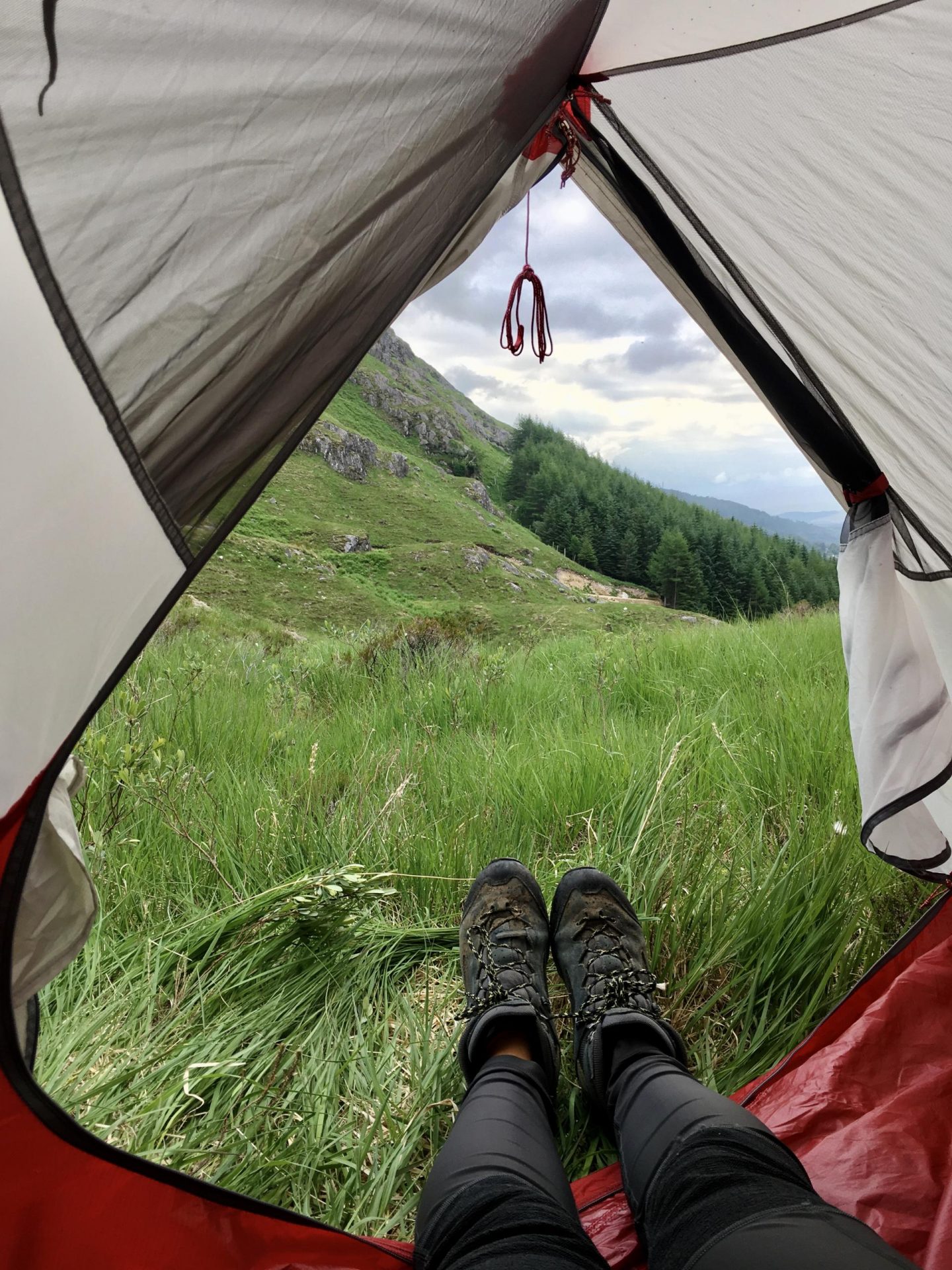
4, Start simple
Even if you’re dreaming of epic multi-day hikes and remote wild camping spots,
it’s best to start with a simple, easy wild camping night while you learn the
basics. Pick a spot close to home and camp just for one night. Dartmoor is a
great choice, as it’s legal to camp on some parts of the moorland, and you can
park up your car, map a route onto the moors and spend a night in the open without
being miles away from roads and your phone charger (or from that extra down
jacket you wish you’d put in your rucksack).
5, Pack light
Wild camping is all about packing light, so you aren’t weighed down when walking finding a camping spot, and so that you leave as little impact on the environment as possible. That said, some kit is non-negotiable – you’ll need a tent or bivvy bag, a sleeping bag, sleeping mat, water, food, a stove and fuel, a head torch and a map, plus warm, waterproof clothing.
6, Choose a small tent
You’re aiming to blend in to the landscape, so don’t bring your massive family palace complete with porch – a lightweight one- or two-man tent is your best bet. Or even better, try hammock camping – hammocks blend in nicely in woodland.
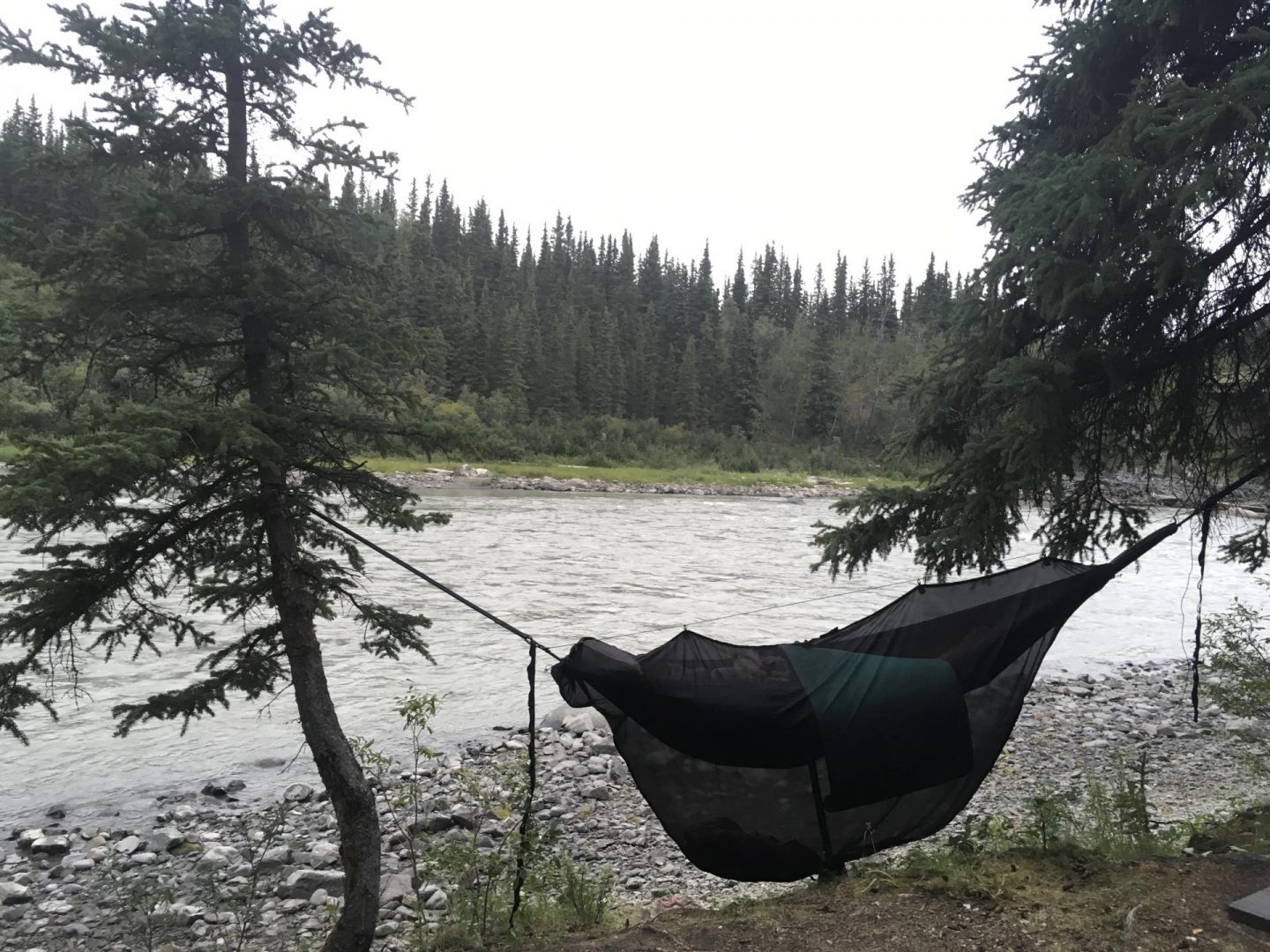
7, Pick the right spot
Look for flat, dry ground and some shelter from the wind. Avoid camping on farmland, and don’t camp anywhere that looks like it might be in use (such as fields or near houses or roads).
8, Arrive late, leave early
It’s good practise to set up your tent at twilight and leave it early in the
morning, thus leaving as little trace of your presence as possible for other
people working or walking in the landscape where you’re camping.
9, Leave no trace
There should be no trace of your visit – carry all your trash home with you.
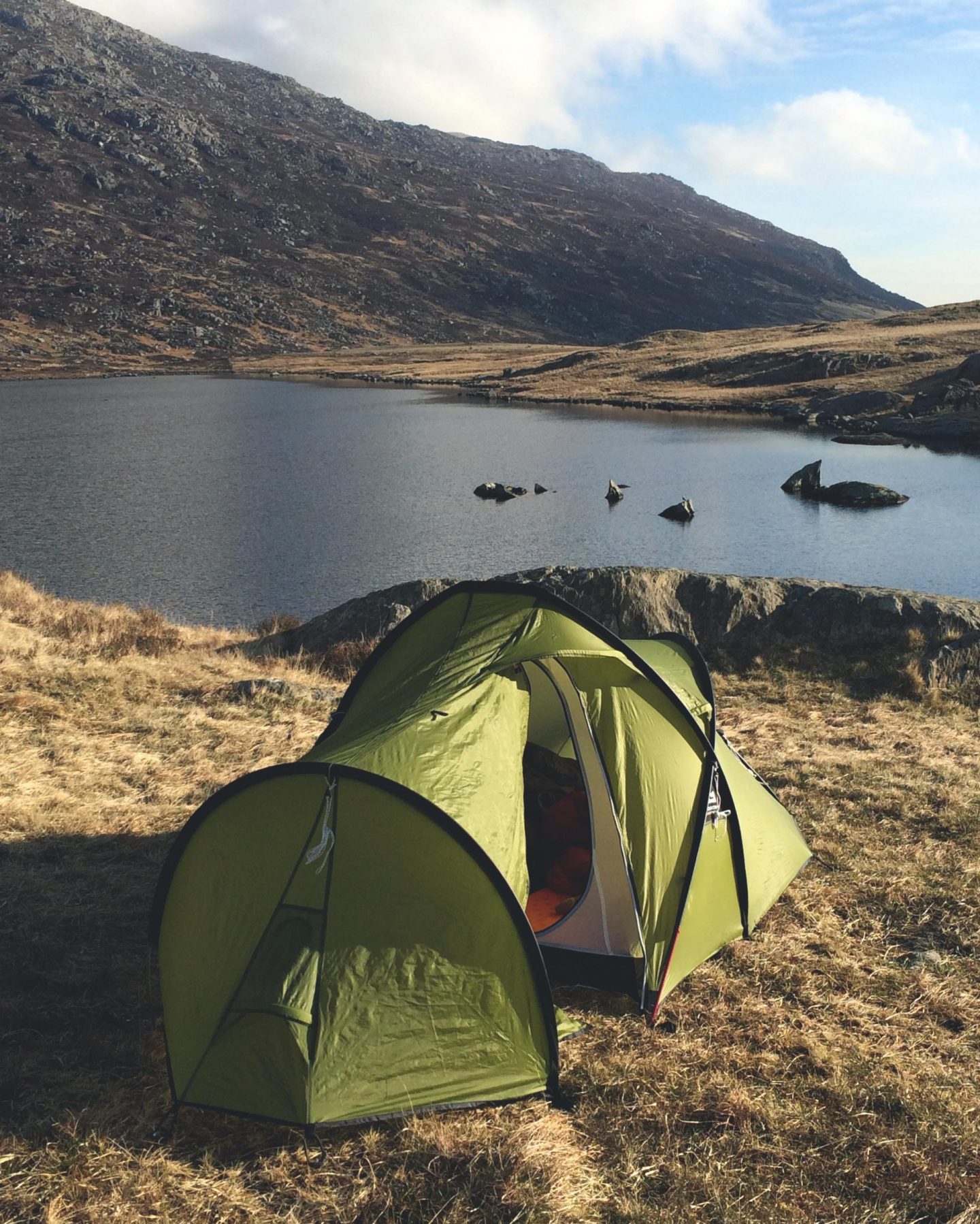
10, Never light a campfire
Never light an open fire – this is to avoid damaging the ground or a letting a fire
getting out of control. Take a small camping stove to cook on, instead.
11, Pack a few luxuries
Wild camping is definitely all about being minimal – but it can make all the
difference if you pack a few extras to make your tent feel like a cosy home. A camping
pillow makes for a good night’s sleep, a small lantern is useful if you’re
arriving in the evening and if you’re on your own, a cheerful book or a funny
podcast to listen to can help you relax.
12, Try bivvying
Got the wild camping bug? Go even more minimal and try bivvy bag camping. A
bivouac or bivvy is a waterproof bag you pop over your sleeping bag to protect
you from the elements. It’s no-frills camping, but it’s also the most subtle
way to wild camp – and you’ll also feel really close to nature. You might even
get to wake up to a wonderful sunrise.
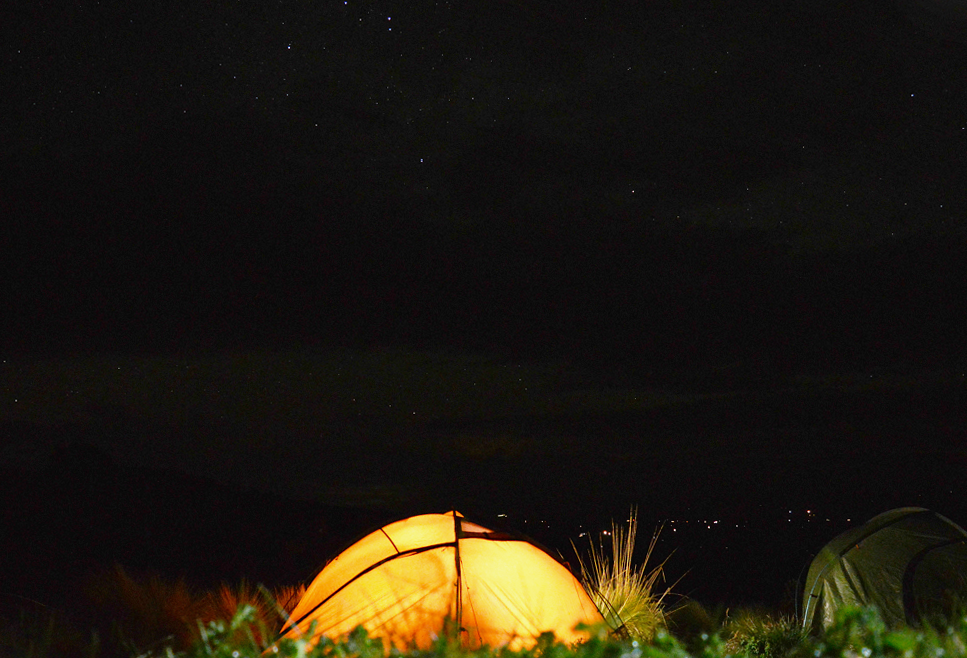
After more wild camping tips? Try my guides to How to go bivvy bag camping
15 Clever camping hacks and tricks